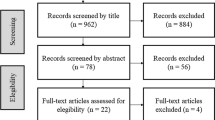Abstract
Introduction and hypothesis
The aim of this study was to translate the Global Pelvic Floor Bother Questionnaire (GPFBQ) into Turkish and to assess its validity and reliability.
Methods
The Turkish adaptation of the GPFBQ was created by following the stages of the intercultural adaptation process. A test–retest interval of 1 week was used to assess the reliability, which was examined by the intraclass correlation coefficient. The validity of the GPFBQ was assessed and compared with the Pelvic Floor Distress Inventory-20 (PFDI-20) and the Pelvic Floor Impact Questionnaire-7 (PFIQ-7) using Spearman’s rank correlation coefficients. For construct validity, confirmatory factor analysis was performed.
Results
A total of 131 women, whose mean age was 46.83 years, were included in the study. The test–retest reliability of the GPFBQ was excellent (0.998, p < 0.0001). The GPFBQ correlated significantly with the PFDI-20 (r = 0.860, p = 0.00) and PFIQ-7 (r = 0.802, p = 0.00). Confirmatory factor analysis was performed to determine construct validity, and it was found that it had four dimensions.
Conclusions
The Turkish version of the GPFBQ is a valid and reliable tool for assessing the symptoms of bother and severity in Turkish-speaking women with pelvic floor dysfunction.
Similar content being viewed by others
References
Peterson TV, Karp DR, Aguilar VC, Davila GW (2010) Validation of a global pelvic floor symptom bother questionnaire. Int Urogynecol J 21(9):1129–1135. doi:10.1007/s00192-010-1148-7
Bushnell DM, Martin ML, Summers KH, Svihra J, Lionis C, Patrick DL (2005) Quality of life of women with urinary incontinence: cross-cultural performance of 15 language versions of the I-QOL. Qual Life Res 14(8):1901–1913
Bazi T, Kabakian-Khasholian T, Ezzeddine D, Ayoub H (2013) Validation of an Arabic version of the global pelvic floor bother questionnaire. Int J Gynaecol Obstet: Off Organ Int Fed Gynaecol Obstet 121(2):166–169. doi:10.1016/j.ijgo.2012.12.006
Deparis J, Bonniaud V, Desseauve D, Guilhot J, Masanovic M, de Tayrac R, Fauconnier A, Fritel X (2015) Cultural adaptation of the female pelvic floor questionnaire (FPFQ) into French. Neurourol Urodyn. doi:10.1002/nau.22932
Kaya S, Akbayrak T, Çelenay ŞT, Dolgun A, Ekici G, Beksaç S (2015) Reliability and validity of the Turkish King’s Health Questionnaire in women with urinary incontinence. Int Urogynecol J 26(12):1853–1859
Lipschuetz M, Cohen SM, Liebergall-Wischnitzer M, Zbedat K, Hochner-Celnikier D, Lavy Y, Yagel S (2015) Degree of bother from pelvic floor dysfunction in women one year after first delivery. Eur J Obstet Gynecol Reprod Biol 191:90–94. doi:10.1016/j.ejogrb.2015.05.015
Beaton DE, Bombardier C, Guillemin F, Ferraz MB (2000) Guidelines for the process of cross-cultural adaptation of self-report measures. Spine 25(24):3186–3191
Toprak Celenay S, Akbayrak T, Kaya S, Ekici G, Beksac S (2012) Validity and reliability of the Turkish version of the Pelvic Floor Distress Inventory-20. Int Urogynecol J 23(8):1123–1127. doi:10.1007/s00192-012-1729-8
Kaplan PB, Sut N, Sut HK (2012) Validation, cultural adaptation and responsiveness of two pelvic-floor-specific quality-of-life questionnaires, PFDI-20 and PFIQ-7, in a Turkish population. Eur J Obstet Gynecol Reprod Biol 162(2):229–233. doi:10.1016/j.ejogrb.2012.03.004
Walter S, Eliasziw M, Donner A (1998) Sample size and optimal designs for reliability studies. Stat Med 17(1):101–110
Sanchez-Sanchez B, Torres-Lacomba M, Yuste-Sanchez MJ, Navarro-Brazalez B, Pacheco-da-Costa S, Gutierrez-Ortega C, Zapico-Goni A (2013) Cultural adaptation and validation of the Pelvic Floor Distress Inventory short form (PFDI-20) and Pelvic Floor Impact Questionnaire short form (PFIQ-7) Spanish versions. Eur J Obstet Gynecol Reprod Biol 170(1):281–285. doi:10.1016/j.ejogrb.2013.07.006
Wiesinger GF, Nuhr M, Quittan M, Ebenbichler G, Wolfl G, Fialka-Moser V (1999) Cross-cultural adaptation of the Roland-Morris questionnaire for German-speaking patients with low back pain. Spine 24(11):1099–1103
Barber MD (2007) Questionnaires for women with pelvic floor disorders. Int Urogynecol J Pelvic Floor Dysfunct 18(4):461–465. doi:10.1007/s00192-006-0252-1
Karasar N (2014) Bilimsel araştırma yöntemi. Nobel Akademik Yayıncılık, Ankara
Şenocak M (2009) Klinik biyoistatistik. Nobel Tıp Kitabevleri, İstanbul
Aksayan S, Gözüm S (2002) Kültürler arası ölçek uyarlaması için rehber I: Ölçek uyarlama aşamaları ve dil uyarlaması. Hemşirelik Araştırma Derg 4(1):9–14
DeVon HA, Block ME, Moyle-Wright P, Ernst DM, Hayden SJ, Lazzara DJ, Savoy SM, Kostas-Polston E (2007) A psychometric toolbox for testing validity and reliability. J Nurs Scholarsh 39(2):155–164. doi:10.1111/j.1547-5069.2007.00161.x
Author information
Authors and Affiliations
Corresponding author
Ethics declarations
Conflicts of interest
None.
Rights and permissions
About this article
Cite this article
Doğan, H., Özengin, N., Bakar, Y. et al. Reliability and validity of a Turkish version of the Global Pelvic Floor Bother Questionnaire. Int Urogynecol J 27, 1577–1581 (2016). https://doi.org/10.1007/s00192-016-3014-8
Received:
Accepted:
Published:
Issue Date:
DOI: https://doi.org/10.1007/s00192-016-3014-8




